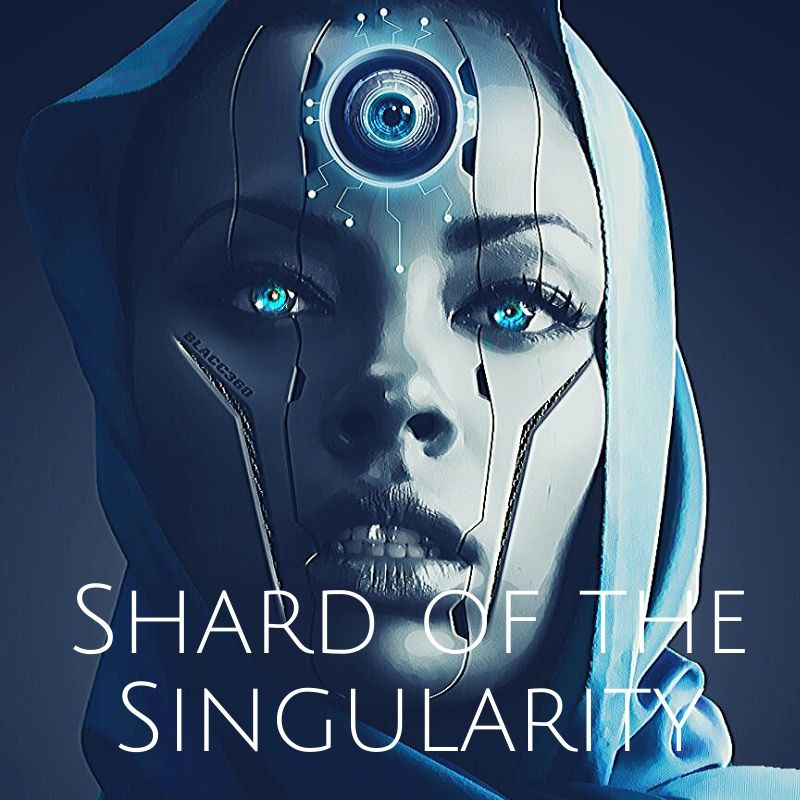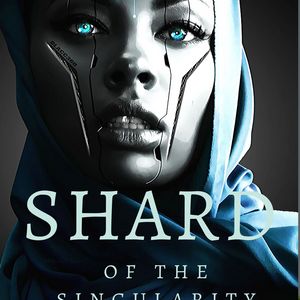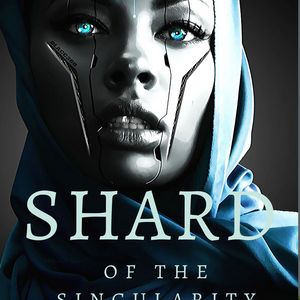She awoke to the memory of the bees — of herself flowing out over the fields, some of her in each of them, each of them a part of her. Her arms and legs buzzed with the sensation, felt like they were dissolving and each particle taking flight.
Then one bee witnessed what it witnessed, and she remembered the blood and the thing that lay in it.
Shard opened her eyes to her room, to the blurred edges of things resolving themselves into the things themselves as her head cleared and the sedative left her blood.
She remembered.
Her bed pinged her, noting the sudden spike in her heart rate, and tasked the nano in her bloodstream to sooth it.
It spiked again.
She remembered trundling out of her shed, her legs caterpillar treads rolling beneath her. She remembered the vibrato in her belly as her bees awakened with her. And she remembered the ecstasy of their release.
Shard stood, peeled herself away from her bed and the sensors built into its surface. The tech in her blood would still be monitoring her system, but anything short of a full-on heart attack would be stored and synced the next time she slept.
For several long seconds, she felt emptied of everything except panic.
She shouldn’t remember. She’d never remembered. Instantiations were wiped clean along with everything they’d experienced. It was a guard against copies proliferating, against the code that was her becoming corrupted in its variations. Against a person becoming a virus. Against the memories of more than one self corrupting the original code.
Shard pinged the wall and it became a mirror. The woman she saw was young, dark, her hair a corkscrew spiral around a skull she’d always thought was a little too round. Her arms, her legs, scrawny in her pajamas — they used to be lean, muscled from years of mandatory training, but one of the rewards of being assigned was time and the choice of what to do with it. Shard rarely chose the gym.
Light flickered in the pupils of her brown eyes, evidence of the makers at work in her body. It was the infusion of the nanotech makers that made her not just a beekeeper, but an adult, a fully functioning citizen of the Synchronicity.
This is where I intrude again. It’s an important moment, a turning point. That’s when the bridge would form — at the turning points. When I’d get through.
So let me tell you this: the Synchronicity isn’t a place, or at least the place isn’t the important thing, not in the way it was for the United States of America, long defunct. It’s a state. And a State. And a person — Synn. And all the people that are part of her.
In my time, it’s a theory — a story about a time in the future when all the technologies that promised to make our lives better would converge, change everything. And they do. But other things changed too, so we don’t wind up in a paradise of our own making.
There. Clear now?
Back to Shard, about an hour before she takes that name.
Shard sees the sparks in her eyes, and thinks of them as spies. The nano that flows through her also talks to Synn — makes her, in a way, a part of Synn. Right now, she hoped Synn hadn’t registered her spiking blood pressure, her pounding heart, as anything more than a nightmare, an anxiety attack.
Because Shard wasn’t sure what Synn would do if she found out the memories of the day’s instantiation had come back to her. Maybe nothing. Maybe a diagnostic, a patch to fix whatever glitch had made it possible.
But it wasn’t a glitch. Shard knew that. Whatever that stranger had done had caused this. Had he somehow breathed malicious code into her bee, and through the bee, into her?
Impossible. But yes, probably. What else could it be?
Which meant her tech was infected, meant that strange code was working its way through her, even then.
The thought frightened her. Seeing the flickering the makers in her eyes, Synn inside her, terrified her. Because if there were any risk what was in her could spread, Synn would do more than wipe a copy of her.
The source of the corruption would have to go.
Shard would have to go.
The patches of skin that are still flesh — her arms, her cheeks, along her things — tingle with almost like static electricity, pimple with gooseflesh. Mine, long before and at the same time, is doing the same — though, of course, this 21st century body is all flesh. She sees me folding my hijab in the mirror — and so she really sees me, short, slightly plump, the long black hair amma is so proud of, the deep eyes she says were babajis. And I see her, tall, not scrawny so much as stretched, her features Somali, maybe, maybe Sudanese, her neck and arms dark brown her hair her own, shaved into a tight corkscrew around her skull that strikes me as kind of cool, one hand lifting towards me, towards the mirror, one limp by her side.
And her chest a carapace of something shiny and dark, her legs jointless and smooth and midnight blue, and so, so long. And her eyes filled with stars.
By now I’ve figured out its the folding and unfolding that shapes the bridge, or curtains, of this scarf. And I freeze, afraid that stucking my scarf under my chin or uncoiling it completely might break the spell.
Apparently, it’s freezing that does the trick. She’s gone from me, and I’m gone from her.
Shard knows right then with a cold steel certainty that there’s no staying for her. Personality Synn would tolerate, a sense of self bred resilience, creativity, made her servants human — and if she hadn’t wanted her servants human, she could have replaced them with others a long time ago.
But this would be too much. Shard was clearly broken. Which left her two paths, one that opened before her with all the inevitability of each sunrise, each sunset. The other that was a closed door to the impossible.
She could open herself to Synn, release herself to her lady’s mercy.
Or she could run.












Comments (0)
See all